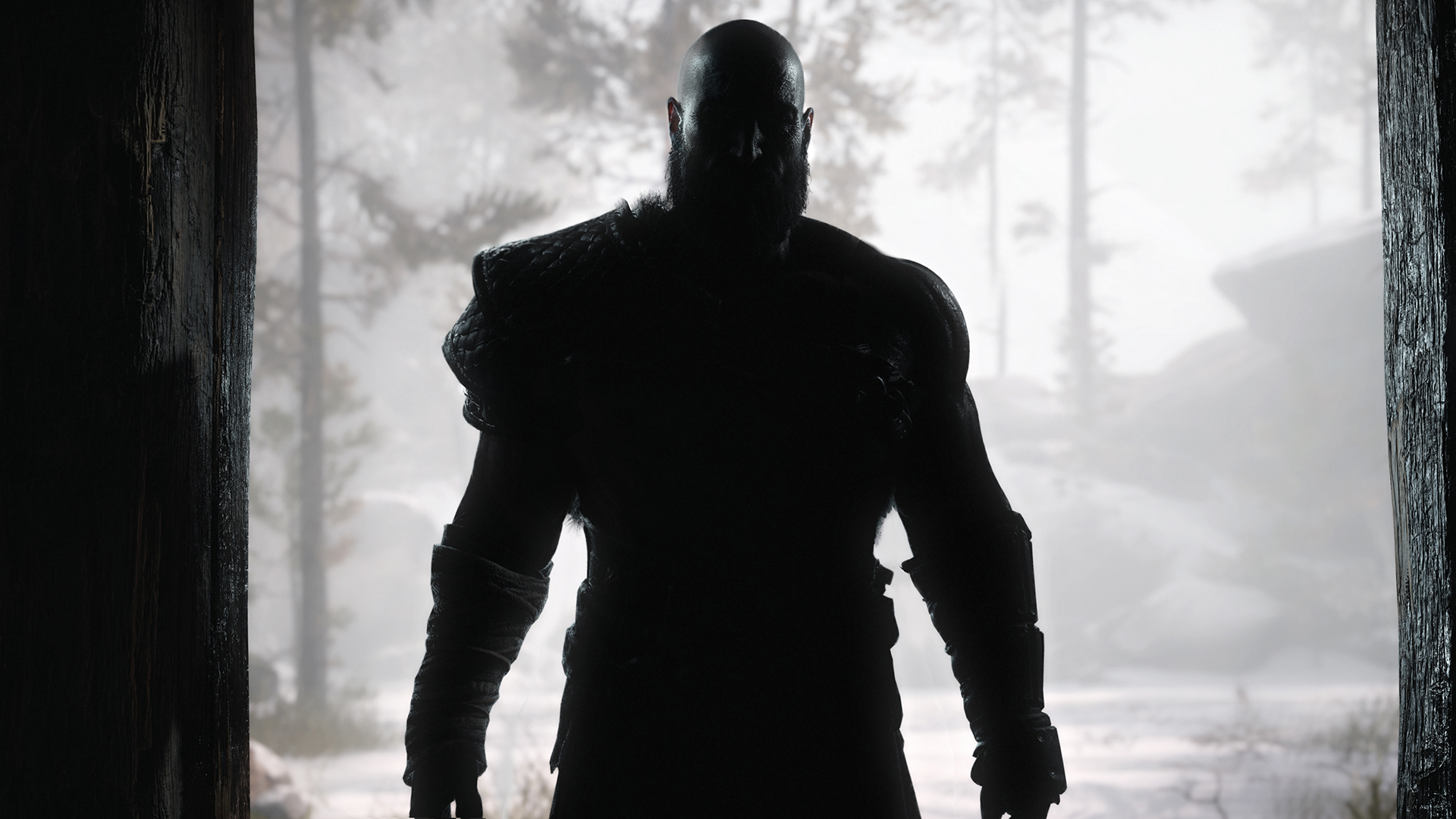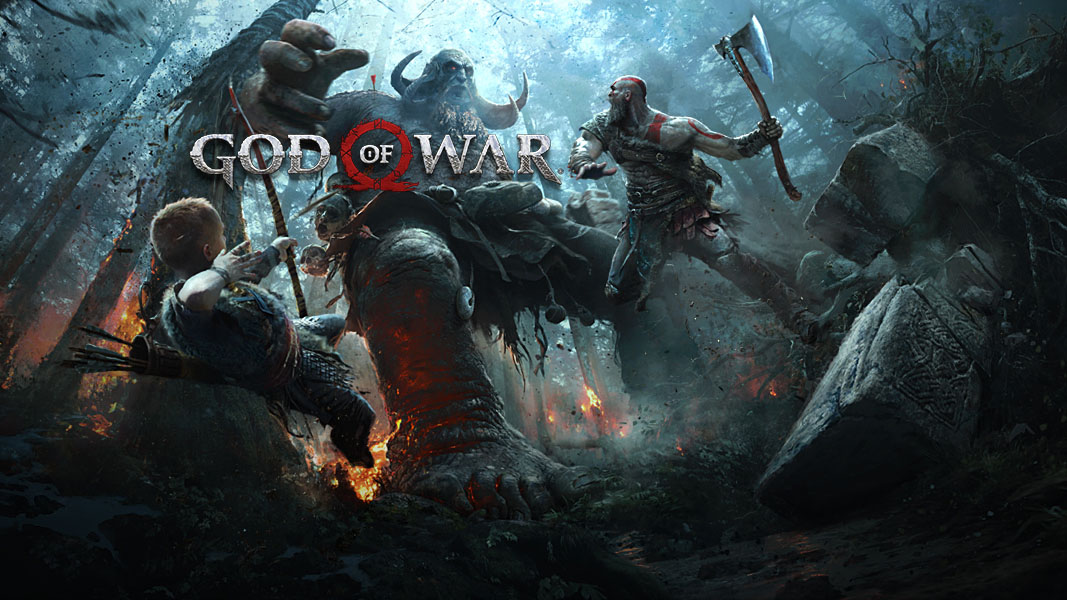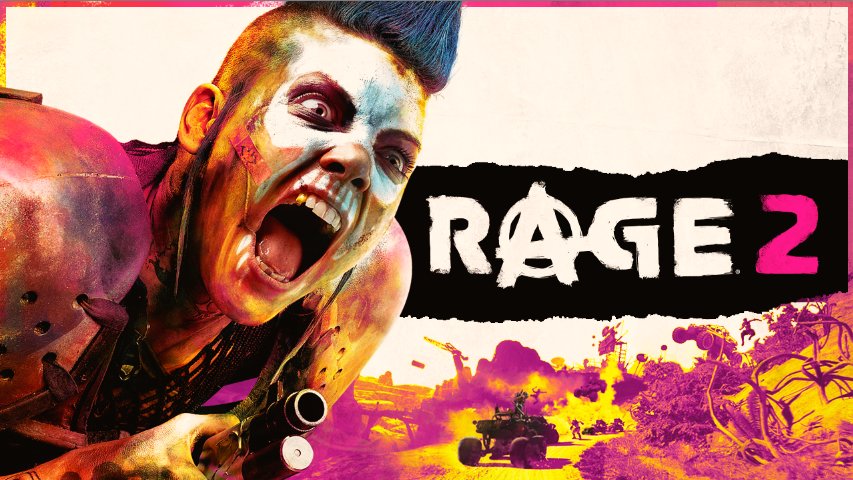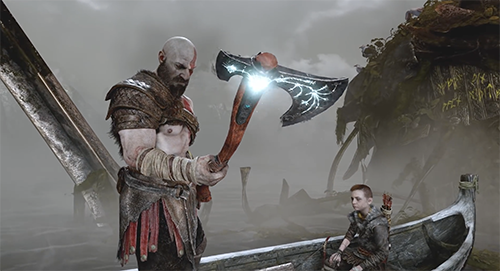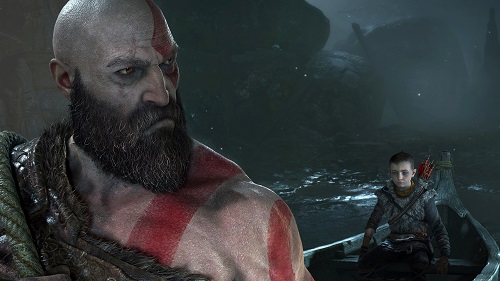
While I have played some God of War games in the past, I had never been a big fan of the franchise. Kratos’ all consuming rage and the grandiosity of his violent destruction of all around him never quite appealed to me. So imagine my surprise when I found myself intrigued and excited by the reboot’s announcement trailer at E3 2016. The setting was different, the combat was different, the world looked gorgeous, and most importantly, Kratos seemed a more circumspect and considered character. Every trailer and written piece since that day on has fuelled that excitement and intrigue, as each painted the picture of a possibly fantastic game and narrative, but leaving the door open to disappointment. Hype is never an easy thing to transcend, regularly poisoning public sentiment towards games and experiences that are good, but not great. In this case, Cory Barlog and Santa Monica Studio’s reimagining of Kratos and the franchise is the most successful I have seen in my time playing games.
Games, in general, are very much a sum greater than their parts. An excellent game can be filled with mechanics, ideas, graphics and stories that are individually uninspiring but come together to create an engaging and exhilarating experience. God of War goes one better than this, combining amazing individual parts to create one of the best games ever released. Central to this, is the reinvention of the series’ combat systems. In the past, God of War games were criticised for being a haven of uninspired button mashing where a single, simple combo could carry you through an entire game. That system is gone, replaced with a system that feels like a cross between a character action game and Dark Souls. Instead of mashing buttons, you’re tasked with learning enemy attack patterns and tells, all the while dodging, blocking and parrying until you can safely launch an offensive. Instead of expecting you to learn a myriad of complex combos the game allows you to unlock context sensitive skills and attacks as you gain experience. These abilities all slot seamlessly into your repertoire, linking to and continuing actions that are already natural in the flow of combat. These are also complemented by equippable Runic weapon attacks that are executed while blocking, the game’s Spartan Rage super and Kratos’s son Atreus, who is an active and incredibly useful part of combat. What results is a system that increases in depth the longer you play the game, while still feeling natural and intuitive in practice. It can feel brutal at times, as enemies attack from behind you (on-screen markers warn you, allowing you to dodge/block at all times) and mistakes can quickly lead to obliteration, but it never feels unfair. The balance between difficulty and frustration is perfect, and the combat feels all the more rewarding because of it.
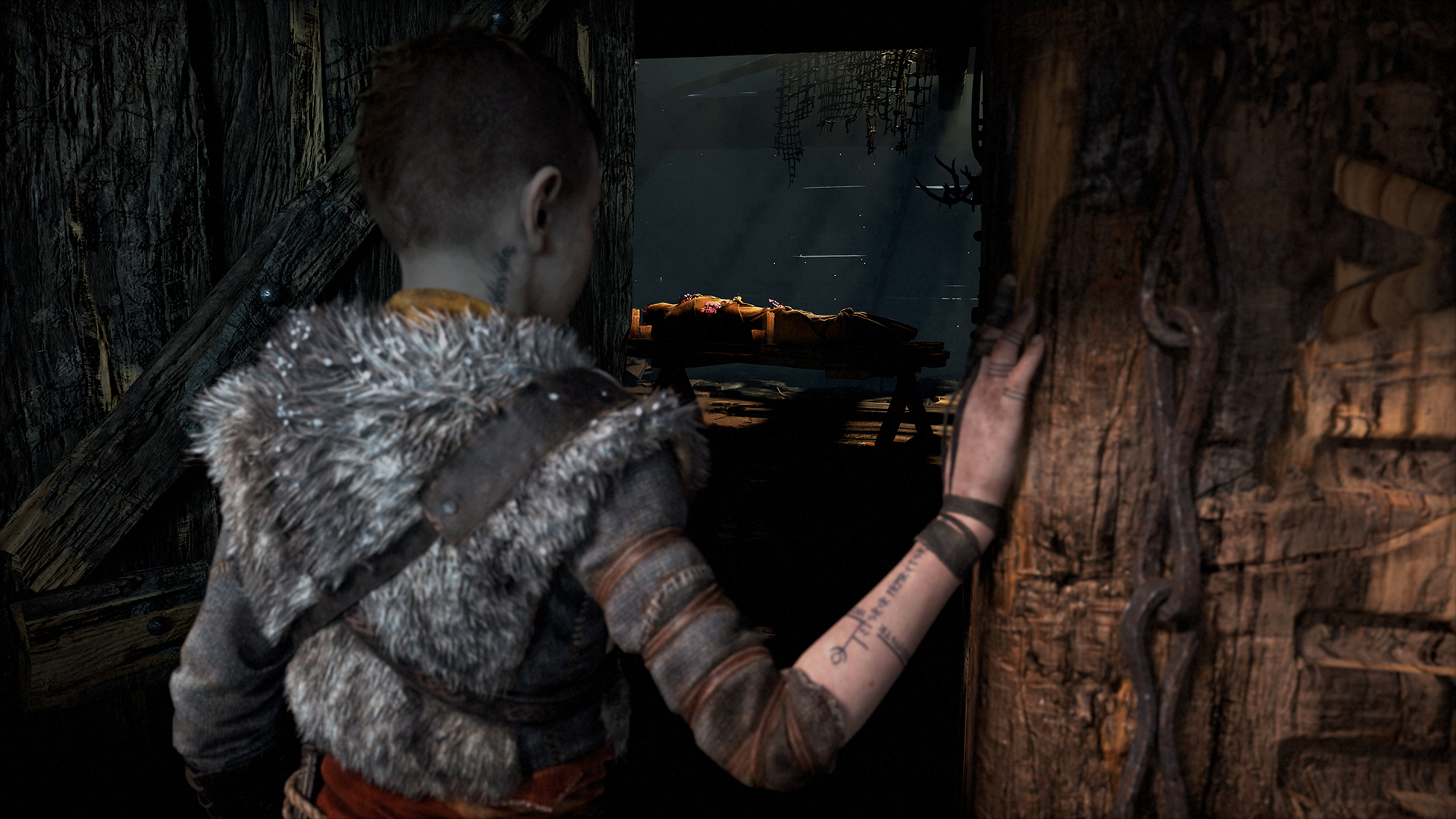
These changes to the God of War formula continue, going all the way to the core of the series, the titular God of War Kratos. Once upon a time Kratos was blinded by revenge, brutally murdering everything in his path on his quest for vengeance. As a character, he was one dimensional, simply an angry man who angrily yelled at everything while he angrily smashed, bashed and slashed everything and everyone that made him angry – which was just everything and everyone. The mere concept of nuance seemed the antithesis of the series, but that has completely changed. From the opening moments of God of War we’re greeted with something unusual, a Kratos who seems to be in quiet contemplation. This perfectly sets the tone for the rest of the game, as we journey with a Kratos who is actively trying to change and become a better person. The largest driving force behind this within the game is his son Atreus. Driven by the need to raise his son, while grappling with the realisation of the monster he had become, Kratos becomes a relatable and highly engaging character. He still isn’t much of talker, but there is a weight of emotion behind his words that had me gripped whenever he spoke. On the other hand, Atreus rarely stops speaking, but his energy and curiosity is infectious. He serves as the player’s font of knowledge, regularly providing context to significant areas and events. These two characters, combined with an interesting stable of support characters, an intriguing antagonist and a well-written and fantastically well-acted story created an incredibly engaging narrative that had me playing fanatically to see what would happen next.
The final big change to God of War comes in the form of its world, both from its setting and design. Kratos has left Greece behind, moving to the colder climate of Midgard in the midst of the Nine Realms of Norse mythology. With this comes a change in visual design, with the world filled with trees, lakes, mountains and Nordic architecture – all rendered with an insane level of detail. Every single thing in God of War has been shown an attention to detail that most games don’t come close to matching with even their most important characters or areas. This goes as far as random crystals in caverns showing signs of being mined and signs of wear and tear on Kratos’s armour. There’s great variety to the visual design as well, as each realm has a different visual style from the last. This means that you’re always seeing new sights no matter how deep into the game you get, which prevents any of the singular realms from losing their impact if you decide to backtrack and explore. It’s easy to argue for God of War as the best-looking game to ever be released. The best example of this is the sheer enormity and complexity to the body of the World Snake, which can be seen coiled around mountains and stretching off into the distance. While the world of God of War looks amazing, its true strength comes from its design. The game is neither a true open-world or linear game, instead operating somewhere in the middle of the two. By avoiding going for a truly open world design, the game avoids the failing suffered by many larger games – a dearth of content. Instead, God of War’s large hub area feels densely packed with content, encouraging you to explore it and rewarding you at every point for doing so. Similarly, by avoiding a wholly linear design, the game avoids creating an impression of being hemmed in. It feels like the perfect balance between open world and linear design, and I hope to see more games adopt this design in future.
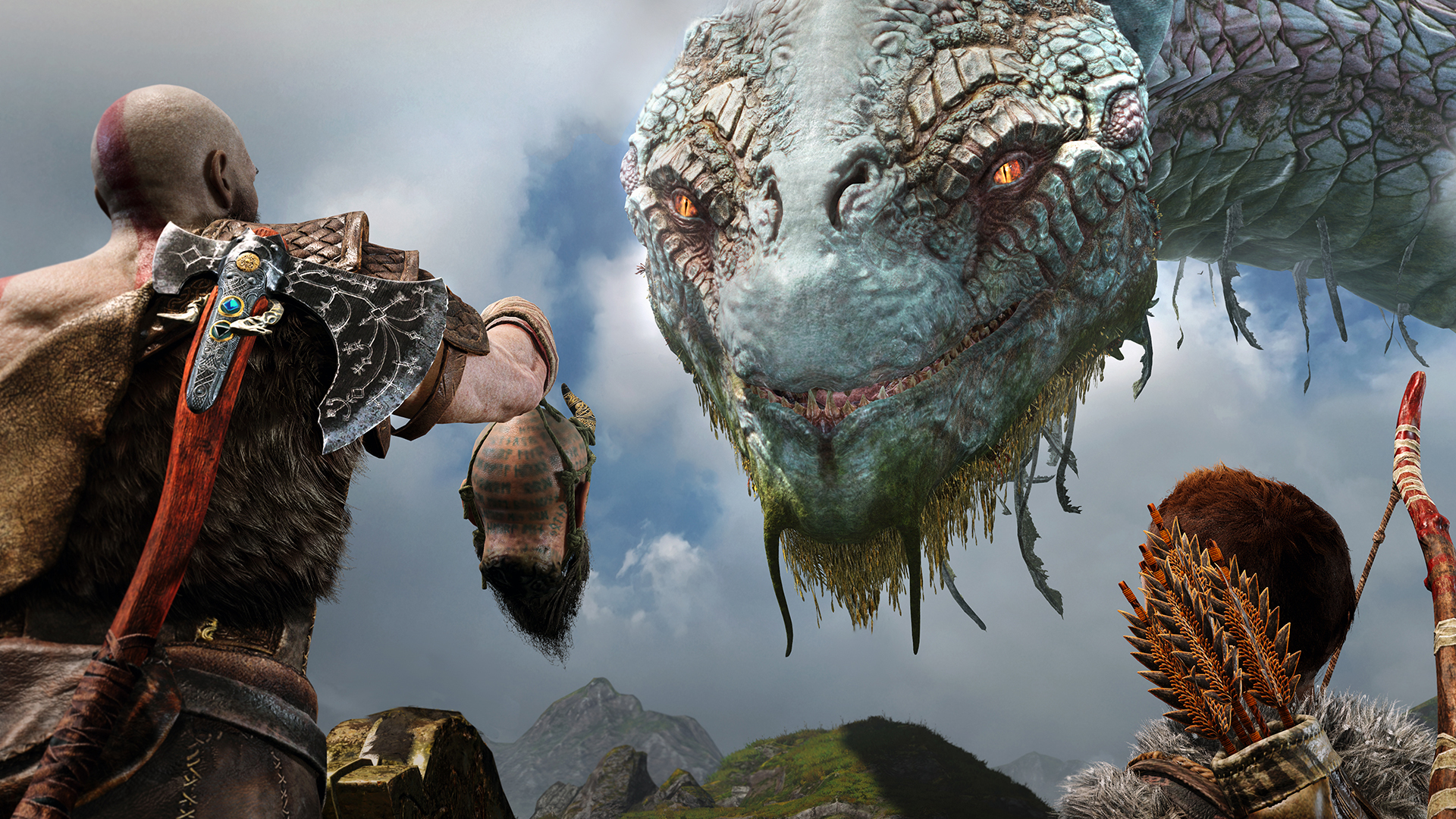
While so many things have changed in God of War, there are a couple of signature elements that have made the leap from previous games. The first of these are the incredible set pieces and boss battles. As the franchise progressed from game to game God of War quickly became known for massive cinematic set pieces and boss battles that were unmatched within the genre. God of War is no different, featuring some of the most exhilarating boss battles and set piece moments I have seen in a game. While I won’t go into any specifics, as these would complete spoil multiple story moments, know that these haven’t been lost in this game. The second of these signature things is Kratos’s brutality in combat. While his character is more considered and tempered, Kratos will still tear enemies in half and crush heads with finisher moves and ends boss battles with incredibly brutal finishing blows. It’s less frequent than in the past, but it just serves to make every instance of it more impactful as you progress through the game.
The game I find myself playing today is all I could have hoped for and more when I saw the game announced on stage at E3 2016. Cory Barlog and Santa Monica Studios have taken a franchise and character that I only had a passing interest in and created a nuanced narrative experience that left me eagerly awaiting more as it ended. Playing God of War is one of the easiest recommendations I have ever made and every present and future PlayStation 4 owners owes it to themselves to try it.
- Kratos has become an engaging and nuanced character - Narrative is incredibly engaging and well-acted - Combat is both deep and intuitive - Arguably the best looking game to date
- Combat can sometimes be overwhelming in large fights

